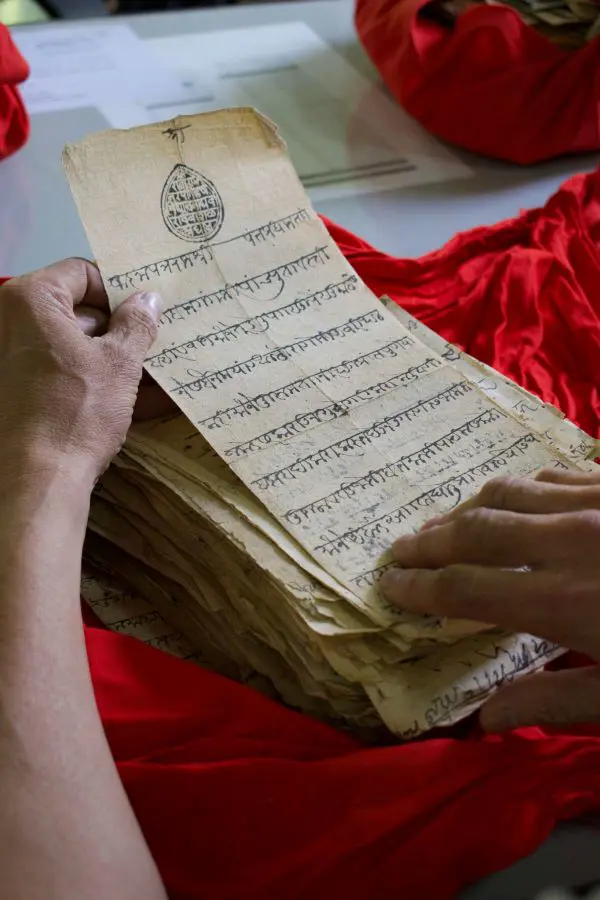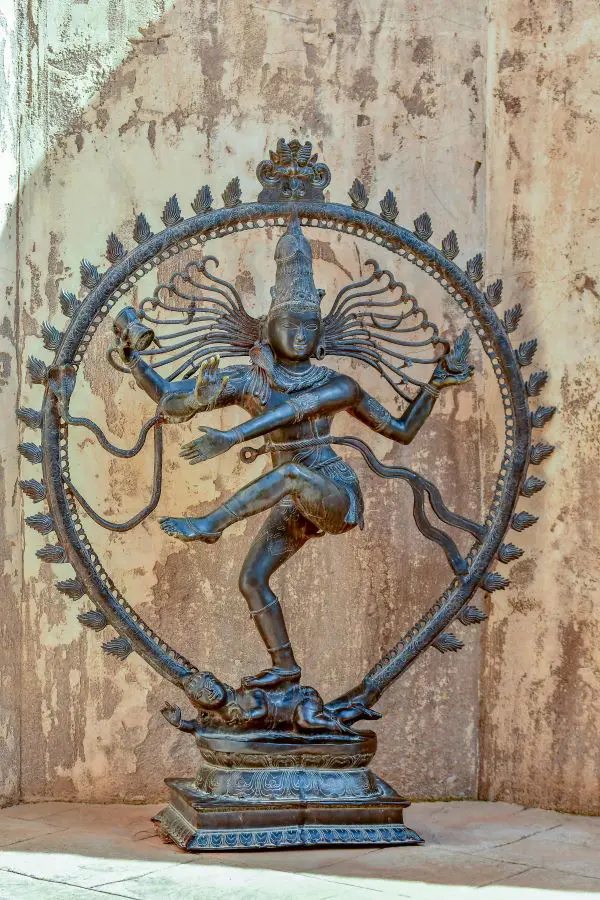List Of Greek Gods And Goddesses And Their Powers
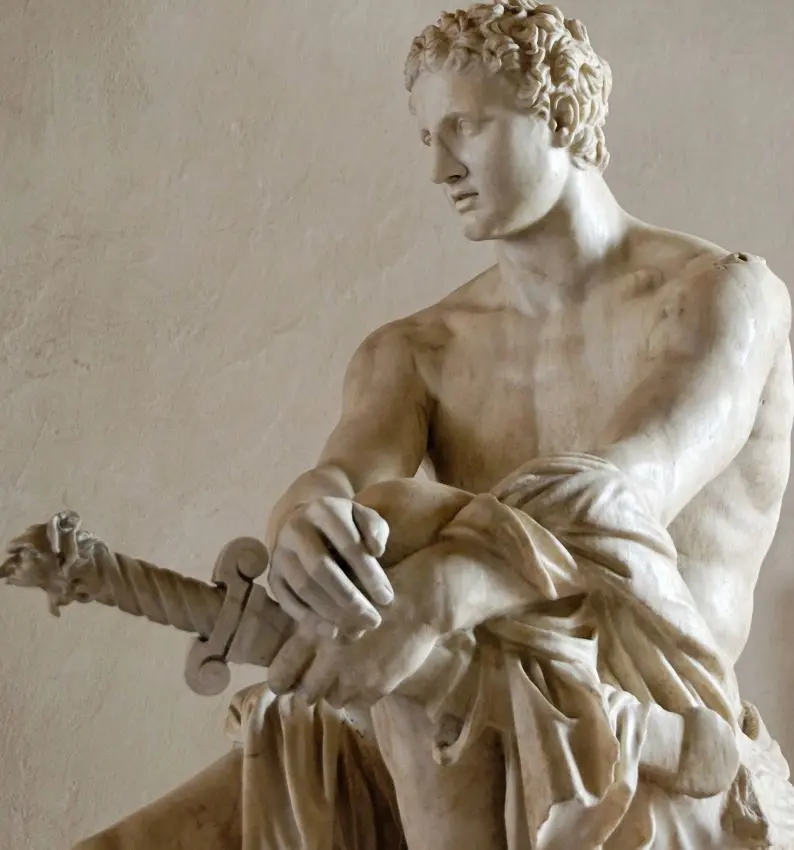
Greek mythology is a colorful narrative of gods and goddesses astounding myths and mythological affairs that have enchanted mankind for many centuries. The Ancient Greeks had an extended list of gods and goddesses in their religion who held different powers and could control various parts of life, nature, and human experiences.
This article talks about all those powers and explains each god and goddess, including what they control, their symbols, their skills, and the most famous myths about them.
1. Zeus

Domain: King of the Gods, Sky, Thunder
Symbols: Lightning bolt, Eagle, Oaktree
Festivals: The ancient Olympic games, The Pompaia
Zeus, the top leader of Mount Olympus, was the god who controlled the sky, thunder, and lightning. As the most powerful of all Olympian gods, he wielded incredible abilities, which are:
- Could control weather patterns
- Threw lightning bolts as weapons
- Shapeshifted into various forms
- Ruled over other gods and mortals
- Known for numerous romantic affairs and numerous divine and mortal children
Surprisingly, the god Zeus's personal life was tumultuous. He was married to Hera but infamous for his countless extramarital relationships. Zeus fathered many legendary heroes and divine beings. Despite his power, he was often portrayed as temperamental and prone to human-like emotions.
2. Hera
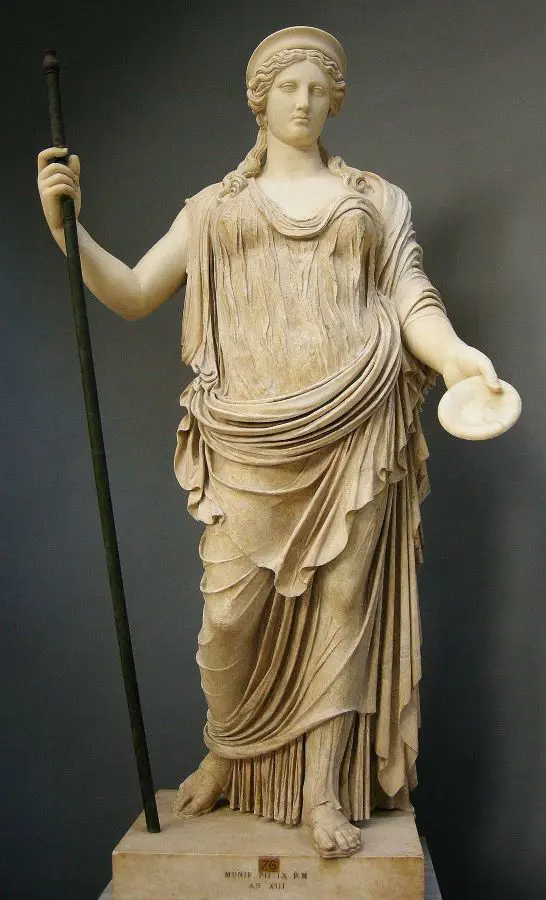
Domain: Marriage, Women, Family
Symbols: Peacock, Cow, Wedding ring
Festivals: Daedala, Herean, Heraia
The goddess Hera's powers and characteristics included:
- Protecting married women
- Ensuring family unity
- Powerful ability to curse and punish
- Guardianship of sacred marriage rituals
- Symbolized feminine strength and dignity
Hera is the queen of the gods and the wife of Zeus. She embodies the ideal of marriage and family but is often portrayed as jealous due to Zeus's extra marital affairs. Hera's wrath is famously directed at her husband's lovers and their children. She played a crucial role in many myths, including those involving Hercules, whom she tried to thwart from birth.
3. Poseidon
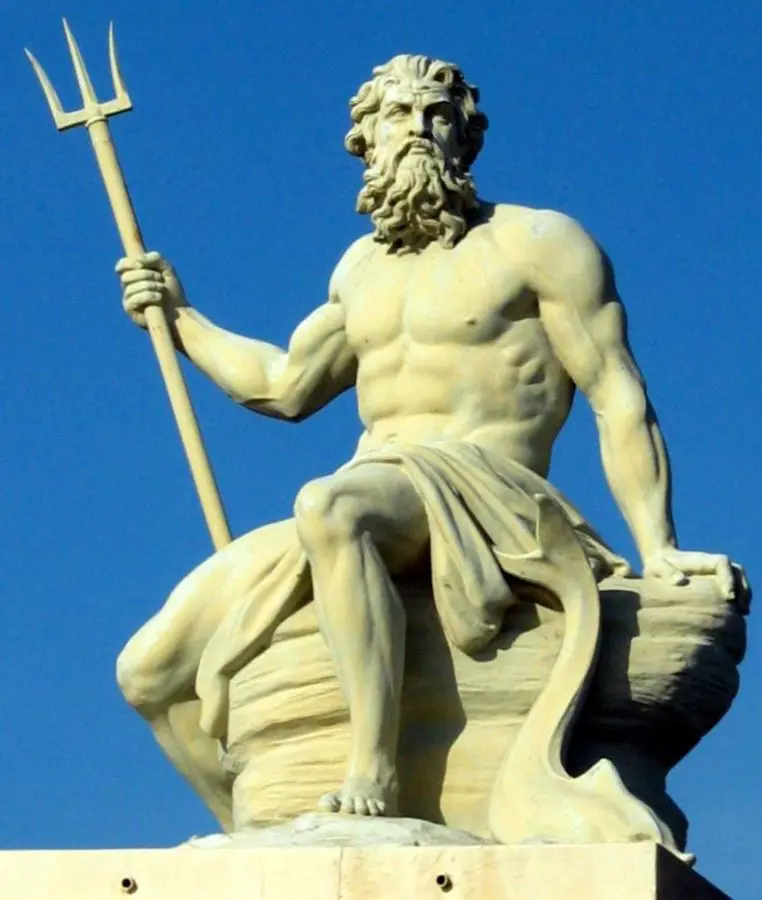
Domain: Sea, Earthquakes, Horses
Symbols: Trident, Horse, Dolphin
Festivals: Haloa Festival, Isthmian Games
The god Poseidon ruled the oceans, earthquakes, and horses. He is one of Zeus's brothers. His remarkable powers included:
- Controlling sea waves and storms
- Creating earthquakes with his trident
- Communicating with sea creatures
- Causing shipwrecks or ensuring safe voyages
- Creating new land masses
Similar to his brother Zeus, he is also known for his moody personality; when he gets angry, he can unleash storms or earthquakes. Poseidon was also believed to have created horses and was usually shown riding in a chariot pulled by them. His rivalry with Athena for the patronage of Athens is a significant myth in which he created a saltwater spring while Athena offered an olive tree. Likewise, he played a critical role in maritime civilizations and was deeply respected by sailors and coastal communities.
4. Aphrodite
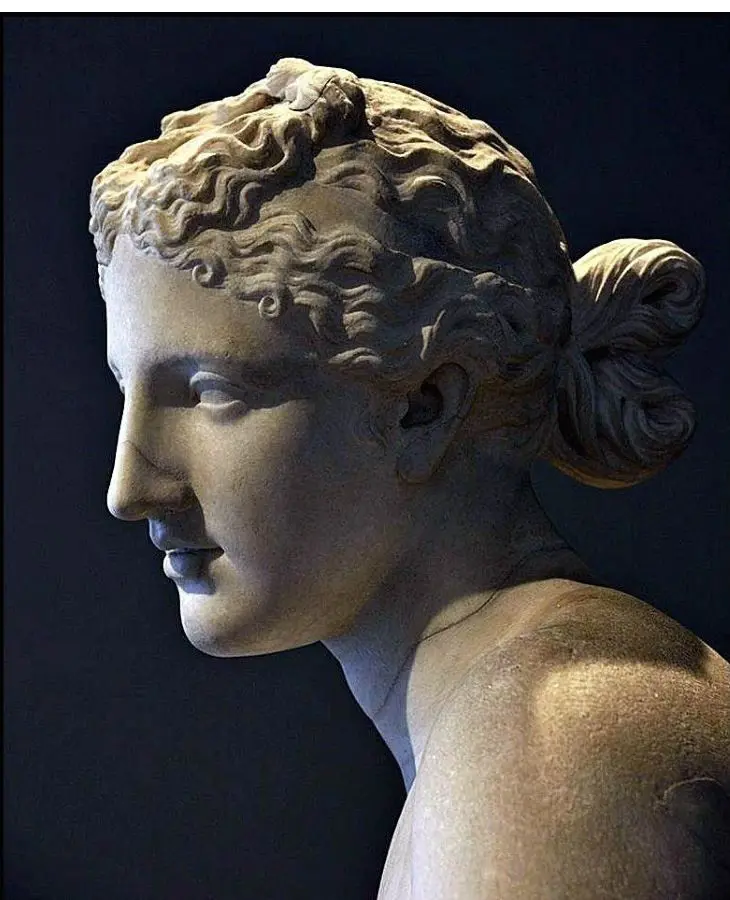
Domain: Love, Beauty
Symbols: Dove, Rose
Festivals: Aphrodisia, Adonia
Representing the most enchanting aspects of human emotion, Aphrodite controlled:
- Romantic love
- Physical attraction
- Beauty
- Passion
- Procreation
- Sexual desire
Aphrodite is the sovereign of passion and attractiveness, and according to myths, she arose from the waves of the sea. Popular for her beauty and wit, she played a big part in many stories. One of these stories is the Trojan War, which started because she promised Paris that he could have Helen as his wife if he chose her as the most beautiful and fair goddess.
5. Apollo
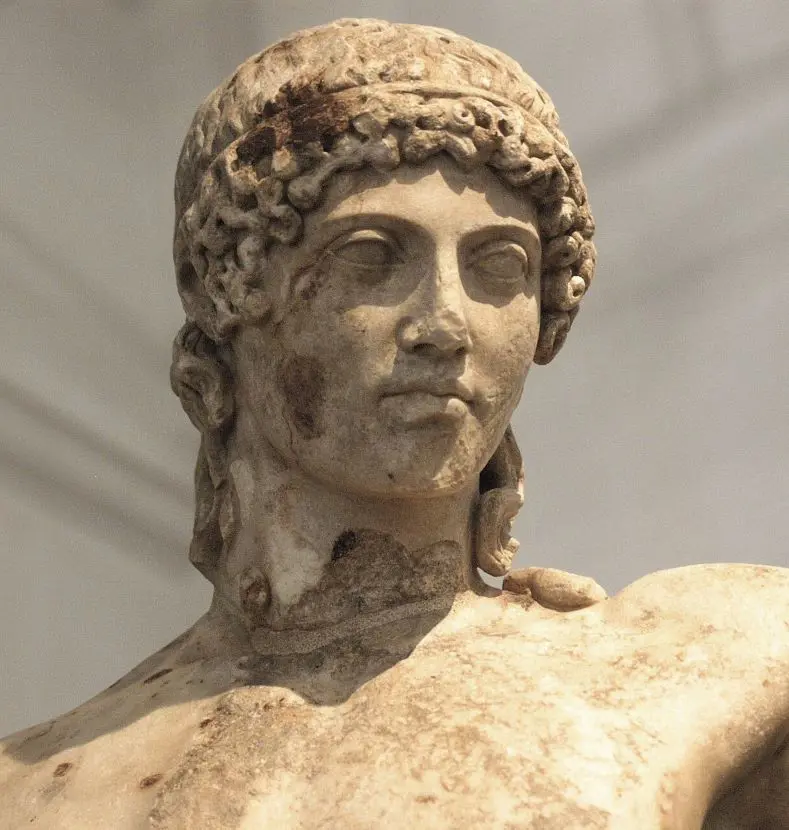
Domain: Light, Music, Prophecy
Symbols: Lyre, Laure wreath
Festivals: Pyanopsia, Daphnephoria, Actia, Delia
Apollo is a multi-talented deity and carries many powers which are:
- Artistic expression
- Musical harmony
- Prophecy and truth
- Healing
- Intellectual pursuits
Apollo is a multifaceted god associated with light, music, healing, and prophecy. As the twin brother of Artemis, he embodies harmony and balance. Apollo is also known for his oracle at Delphi, where he communicated divine truths through priestesses. His myths often involve themes of love and loss- most notably his unrequited love for Daphne.
6. Ares
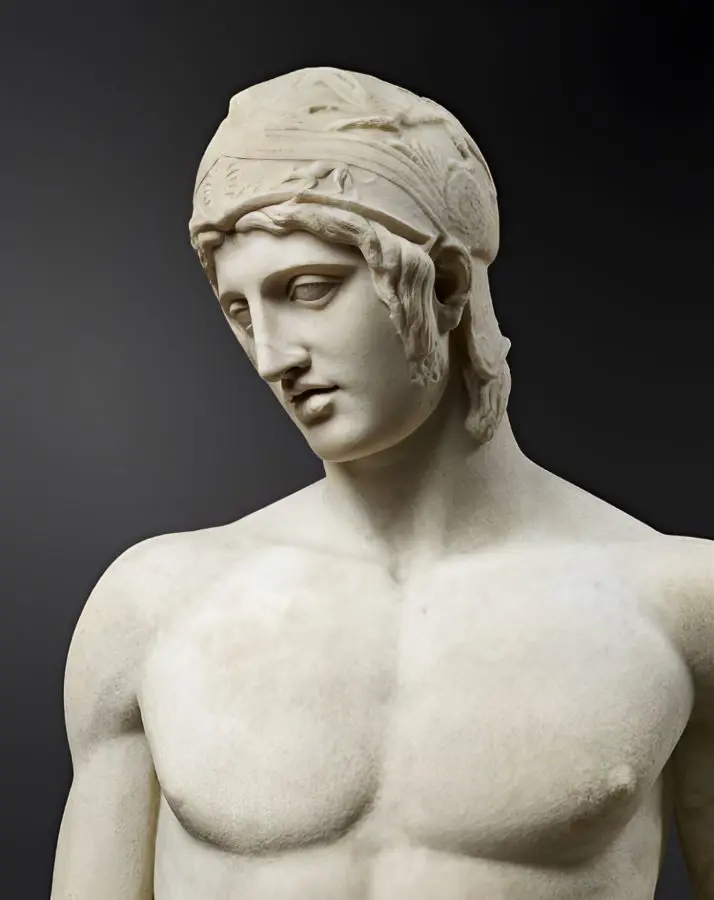
Domain: War
Symbols: Spear, Helmet
Festivals: Pyanopsia, Haloa
Ares represented the violent and brutal aspects of war. The renowned powers of Ares god are:
- Raw, brutal combat
- Aggressive warfare
- Violent passion
- Unbridled masculine energy
- Martial courage
Ares represents the chaotic aspects of war bloodshed and violence- unlike Athena's strategic approach to warfare. Despite being one of the Twelve Olympians, Ares was not well-liked among other gods due to his aggressive nature. He had an infamous affair with Aphrodite that produced several children representing fear (phobos) and terror (Deimos).
7. Artemis
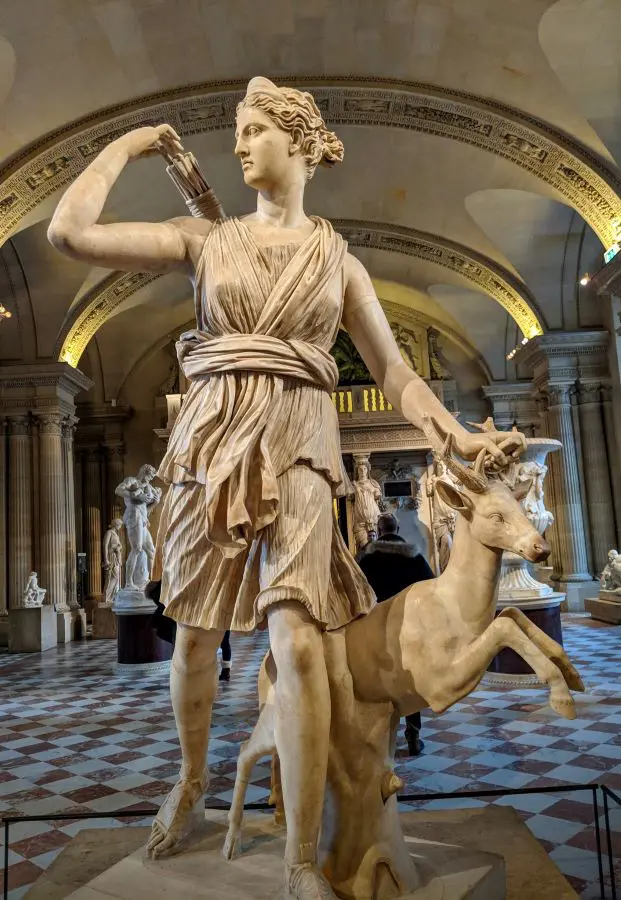
Domain: Hunt, Wilderness, Moon
Symbols: Bow and Arrow, Deer
Festivals: Laphria, Artemisia
A fierce and independent deity, Artemis is the goddess of:
- Hunting
- Wild nature
- Wilderness
- Chastity
- Protection of young girls
She was the daughter of Zeus and Leto and the beloved goddess of the countryside. She is frequently shown as a strong guardian of nature and women's rights. As Apollo's twin sister, she shares traits of independence and strength. Artemis's most famous myth involves her hunting prowess; she accidentally kills Otion after being tricked by Apollo into believing he is a threat.
8. Athena
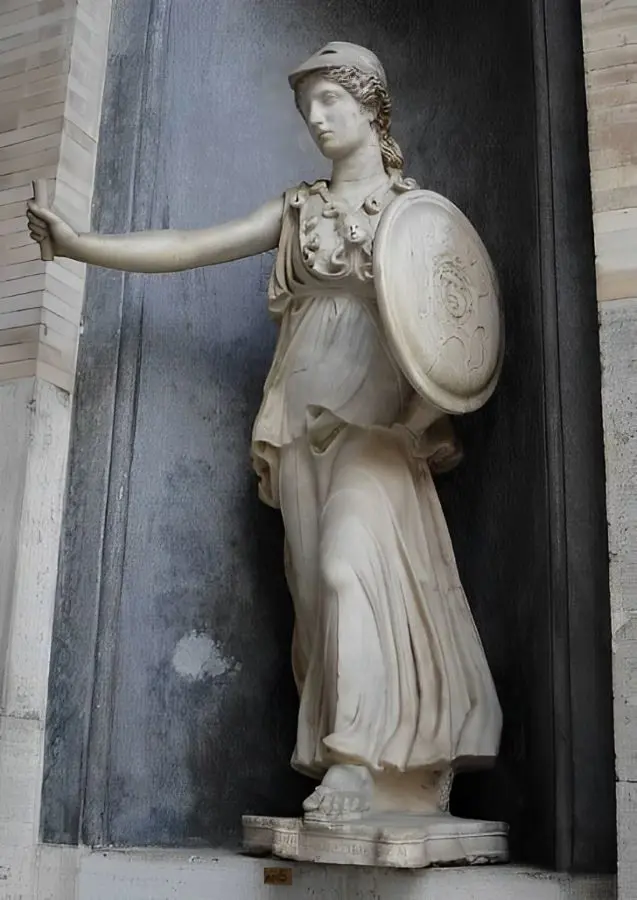
Domain: Wisdom, War Strategy, Crafts
Symbols: Owl, Olive Tree
Festival: The Panathenaea (or Panathenaia)
Athena's extraordinary abilities included:
- Unparalleled strategic thinking
- Tactical warfare expertise
- Patronage of artisans and craftspeople
- Divine inspiration for intellectual pursuits
Typically portrayed as a virgin goddess, Athena is renowned as the goddess of wisdom and warfare strategy. Born fully grown from Zeus's forehead after he swallowed her mother Metis, she represents intelligence in battle rather than brute force. Athena was also a protector of cities; her most famous temple is the Parthenon in Athens. She played pivotal roles in various myths, including aiding heroes like Odysseus.
9. Demeter
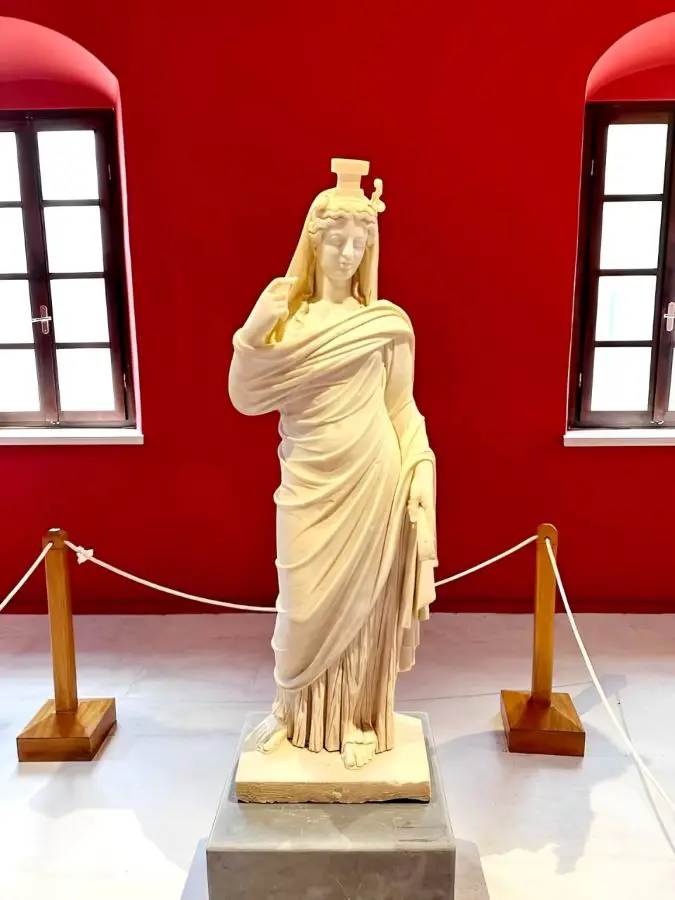
Domain: Agriculture, Harvest, Fertility
Symbols: Wheat, Cornucopia, Torch, Poppy, Bread
Festivals: Thesmophoria, Eleusinian Mysteries
Demeter governed agriculture, fertility, and the harvest. Her significant powers and responsibilities included:
- Controlling crop growth
- Managing seasonal changes
- Protecting farmers and their lands
- Maintaining the cycle of life and death in nature
She is most famous for her strong connection with her daughter Persephone, who was taken by Hades to be his wife in the underworld. Demeter's sadness made the earth dry and empty while Persephone was gone, which is how the seasons change- a myth that helps us understand why winter comes.
10. Dionysus Or Hestia
Domain: Hearth, Home (Hestia)/ Wine, Festivity (Dionysus)
Symbols: Hearth flame (Hestia)/ Grapevine (Dionysus)
Festivals: Vestalia (Hestia)/ The Dionsiya, The Anthesteria, The Lenaia (Dionysus)
Hestia represented:
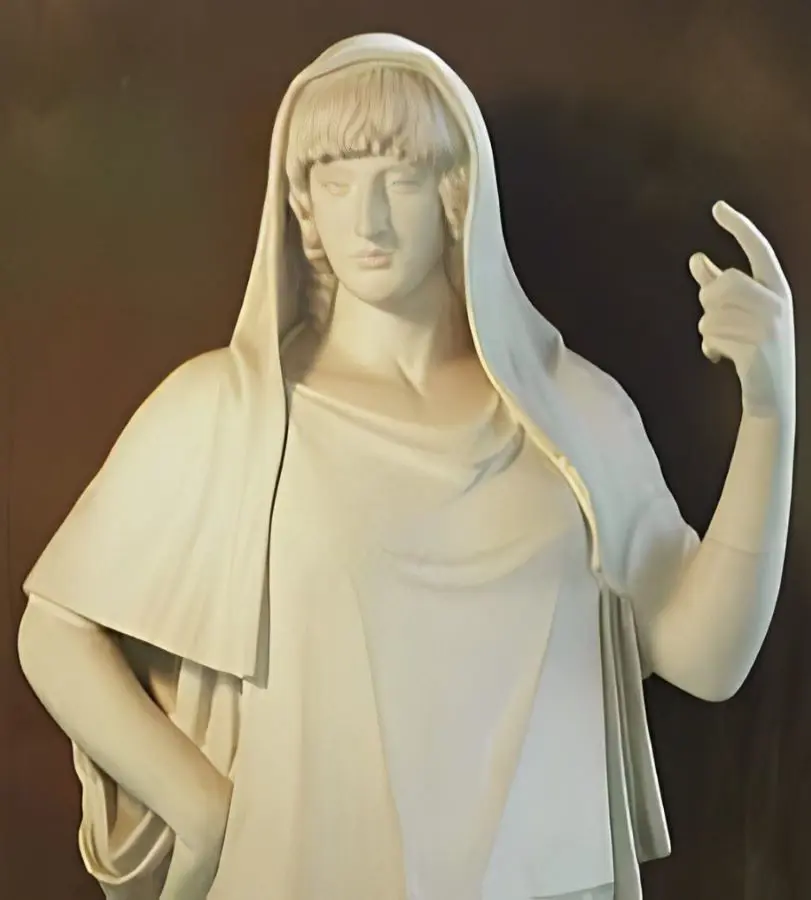
- The hearth fire
- Domestic and household life
- Family
Dionysus represented:
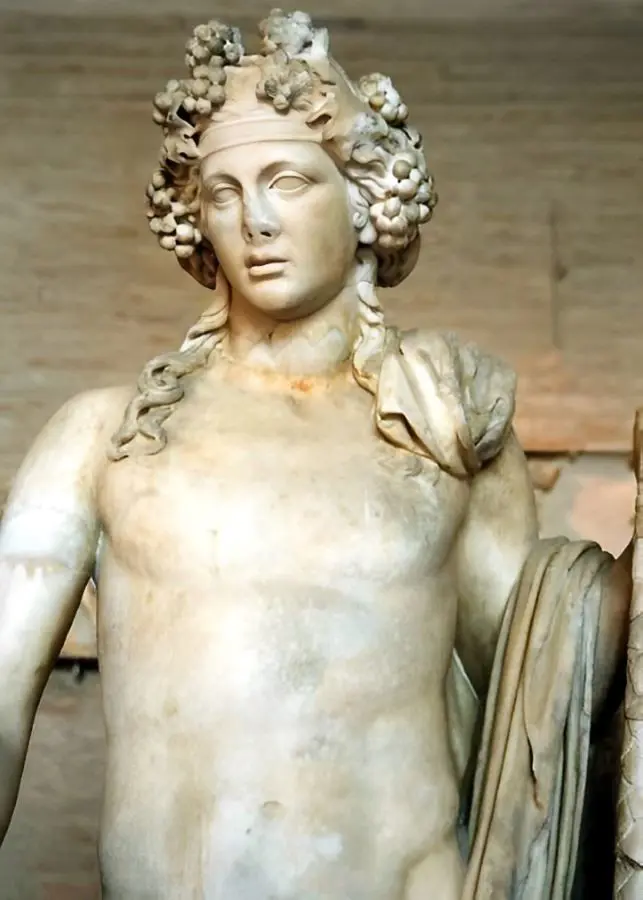
- Wine and intoxication
- Theatre and performance
- Religious ecstasy
- Agricultural fertility
- Social liberation
Hestia is the goddess of hearth and home; she represents domesticity and family unity but has a less prominent role in myths compared to other Olympians due to her reserved nature.
In some versions of mythology, Dionysus replaces Hestia among the Twelve Olympians as he embodies wine-making and revelry- bringing joy but also chaos.
11. Hephaestus
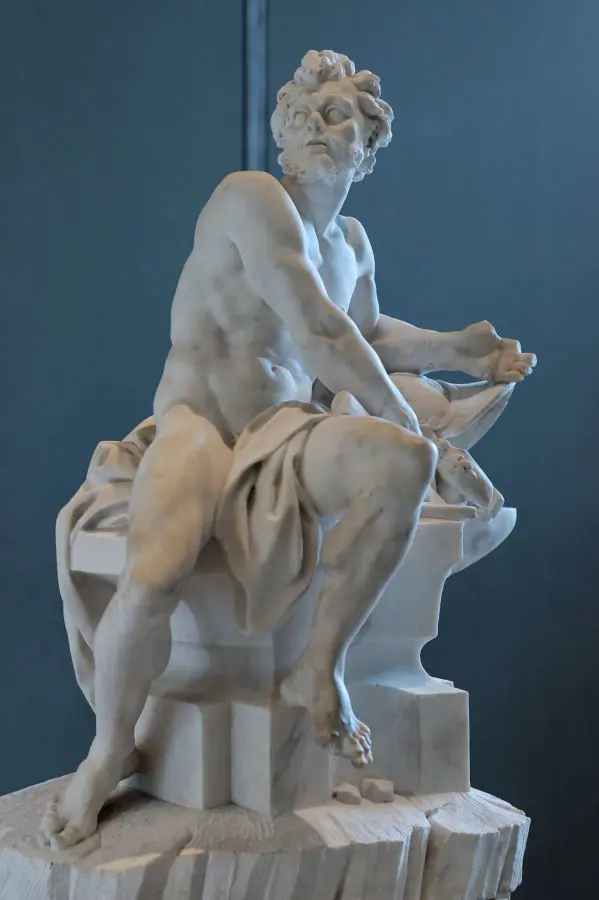
Domain: Fire, Metalworking
Symbols: Anvil, Hammer
Festivals: Hephaesteia, Chalceia, Apaturia
Hephaestus was the master craftsman of the gods:
- Metalworking
- Volcanic fire
- Crafting divine weapons
- Technical innovation
- Artistic creation
Being the god of fire and craftsmanship; he represents innovation through technology and artistry in metalworking. Despite being physically imperfect (often dedicated as lame), he crafted magnificent weapons for gods and heroes alike. His marriage to Aphrodite was tumultuous due to her infidelities but symbolizes creativity overcoming adversity.
12. Hermes
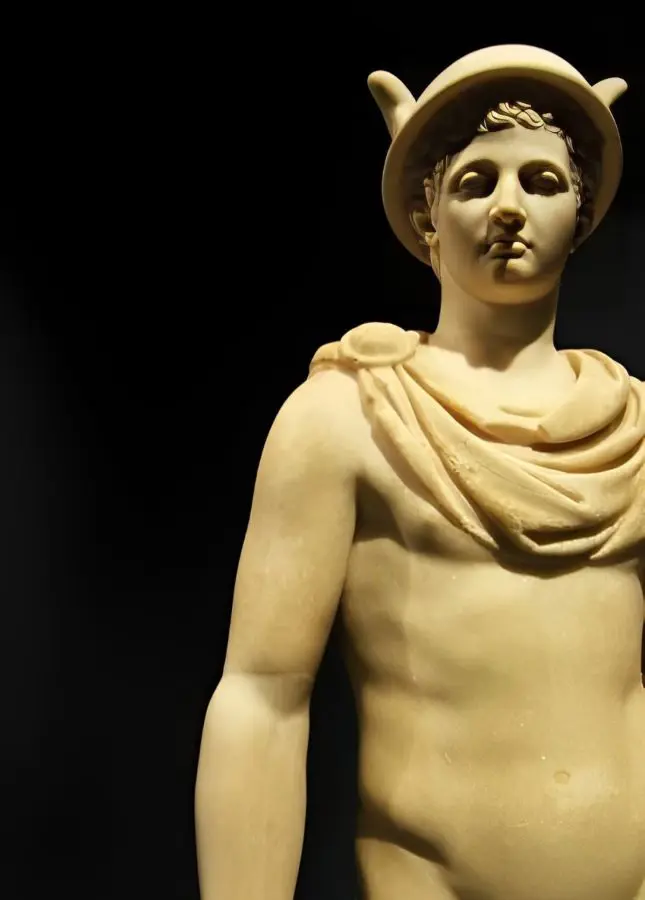
Domain: Trade, Travel, Thieves
Symbols: Caduceus (staff), Winged Sandals, Talaria, Rooster
Festivals: Hermaea, Hermes
Hermes served multiple roles:
- Divine messenger
- God of travelers
- Patron of merchants
- Guide of souls to the underworld
- Master of cunning and communication
Hermes serves as the messenger of the gods and is known for his cunning nature as well as his speed-often depicted wearing winged sandals. He guides souls to the underworld while also being associated with trade and commerce due to his role as a protector of merchants.
Interesting Facts And Myths About Greek Gods And Goddesses
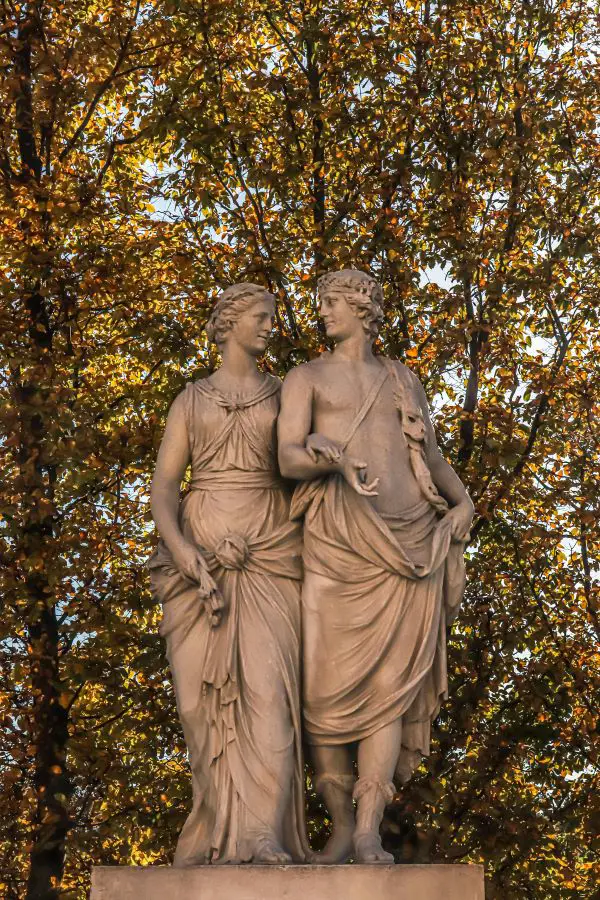
There are many interesting myths about all those gods and goddesses, making everyone shocked and curious. Below, we have discussed some of those secrets, let's delve into them:
Ares was not that influential and Artemis was a killer
We have mentioned that Ares was known as a god of war, and people always take him as a synonym for bloodshed, but in Greek mythology, it was mentioned that he always obeyed his sister Athena's orders. And we know Athena is the goddess of defense and righteous battle, which makes Ares bow to her.
Likewise, despite being the huntress, protector of animals, and goddess of childbirth Artemis once killed six daughters of Niobe because she thought they insulted her mother Leto.
Theseus was a manipulator
You may know about the story of Theseus where he entered a deadly maze, killed the Minotaur to stop the sacrifices, and used a thread to find his way out, but his victory brought both freedom and heartbreak (cost many people's lives). While escaping the labyrinth he took the help of the Cretan and Princess Ariadne, whom he later took with him when he left the island. However, he abandoned her on the Greek island of Naxos.
According to Plutarch, when Theseus founded today's capital Athens, he thought of raping the women to increase the population. This behavior of him makes people hate him eternally.
Zeus, the serial predator
Regardless of being the ruler of gods, he used to transform into various animals to pursue his desires. He famously charmed Demeter and her daughter Persephone by appearing as a serpent. Persephone later married his brother Hades. He also took the forms of many other animals and took the benefits of many other women, for instance, he goes after Asteria and Aiginia as an eagle, Boetis as a goat, and Europa as a bull.
Shockingly, he also took advantage of some women by making them believe he was their husband. A perfect example is the story of Alkmene (Hercules's mother).
Hades wasn't such a monster in Greek mythology
Hades, the Greek god of death and the underworld is often misunderstood by many as being like the Christian devil, but that's not the reality according to Greek mythology. He ended up ruling the underworld not by his choice but because he drew the shortest straw in a lottery with his brothers (Zeus and Poseidon), who got control over the sky and the sea.
Despite his dark reputation, Hades didn't decide the fate of souls- this job belonged to the three demigods Minos, Aiakos, and Rhadamanthys, who judged whether souls were condemned or redeemed.
Medusa was not only a monster in Greek Mythology
Medusa could turn anyone into stone because of her snake-covered hair and her deadly gaze. However, what's often forgotten is that she was the only mortal among the three Gorgon sisters (her siblings), Stheno and Euryale, who were immortal and also had snakes for hair. Medusa also had a relation to another mythical figure, Echidna, who was her sister and the wife of Typhon (a scary dragon with a hundred heads).
Echidna and Typhon were the parents of many mythical monsters like the Nemean Lion, Cerberus, the Hydra, and Ladon. Similarly, they also gave birth to other frightening creatures, such as Chimera, the Sphinx, Scylla, the Colchian Dragon, and the Eagle that endlessly tortured Prometheus by devouring his livers every day as punishment.
The Olympians were not the first immortals in Greek mythology
Don't be shocked but according to Greek mythology, there were older Titans before the Olympian gods. There was Chaos, father to Gais (earth) and Eros (love). Gaia gave birth to the Uranos (sky), the Sea, and the Mountains.
Afterward, she married Uranos and gave birth to the Titan Cronus. Cronus married his sister Rhea and bore the Original immortals- Zeus, Hera, Hestia, Hades, Poseidon, and Demeter. These gods even went to war with the Titans for control of the world in Greek mythology.
Pandora had a daughter, and Aphrodite went to war
Pandora is known for opening the box that unleashed the evils into the world. She was married to Epimetheus and had a mortal daughter, Pyrrha. She married her cousin, Deukalion, and because of that the god sent a massive flood to ruin the earth and the mortals. By luck, Pyrrha and Deukalion survived, and after seeking help from the Oracle at Delphi, they cast the bones of Pandora to the ground so that the world would be repopulated, which made Pandora the symbolic mother of humanity.
Meanwhile, Aphrodite also had a fierce side. She was romantically linked to Ares and together they had three children: Eros (love), Phobos (fear), and Deimos (terror). Because of this connection, she's sometimes depicted in armor or with weapons, especially in the artworks found in ancient port cities, blending her beauty with a hint of warlike strength.


